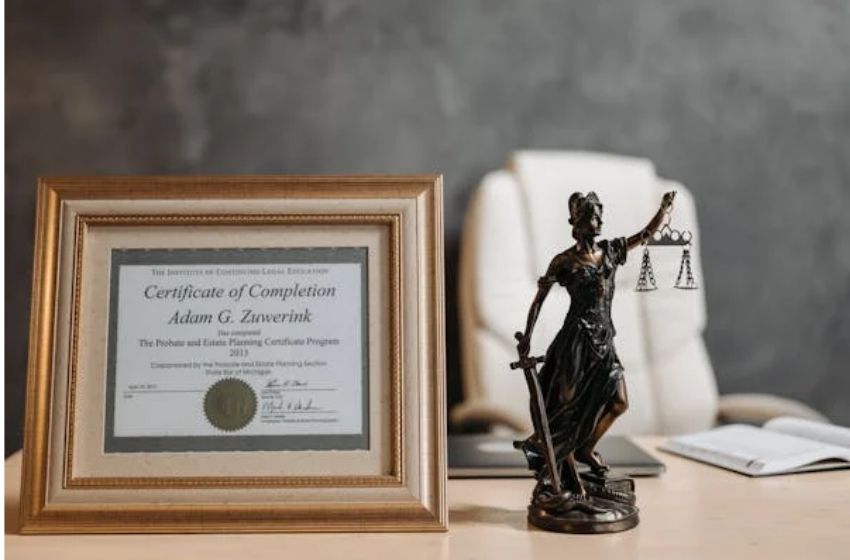In the realm of education, every child has the right to an appropriate learning environment tailored to their unique needs. However, navigating the complexities of special education law can be daunting for many parents. This is where the expertise of a special education attorney becomes invaluable. In this article, we will explore the role of a special education attorney, the services they provide, and how they can advocate for children with disabilities. Here at Wisto Journal, we believe it’s crucial for families to understand their rights and the resources available to them.
What is a Special Education Attorney?
A special education attorney specializes in the laws and regulations surrounding the education of children with disabilities. They are well-versed in the Individuals with Disabilities Education Act (IDEA), Section 504 of the Rehabilitation Act, and various state laws that govern special education. Their primary objective is to ensure that children receive the educational services and accommodations they are entitled to by law.
Special education attorneys typically represent families in disputes with school districts, providing legal guidance and support throughout the process. This can include negotiating Individualized Education Programs (IEPs), attending meetings, and, when necessary, representing families in due process hearings.
Why is Legal Representation Important?
Understanding the special education landscape can be overwhelming for many parents. The legal jargon and procedural requirements often create barriers that make it difficult to advocate effectively for a child’s needs. A special education attorney plays a critical role in demystifying this process.
- Knowledge of Laws and Regulations: Special education laws can vary significantly by state. An attorney specializing in this area has a thorough understanding of these laws and how they apply to individual cases.
- Negotiation Skills: Many disputes between families and schools can be resolved through negotiation. A special education attorney can effectively advocate for the necessary services and accommodations, ensuring that the child’s best interests are prioritized.
- Litigation Experience: In some cases, disputes may escalate to formal hearings. A special education attorney has the experience needed to represent families in these settings, presenting evidence and arguments to support the child’s educational needs.
Common Services Provided by a Special Education Attorney
The role of a special education attorney encompasses a wide range of services, all aimed at advocating for children with disabilities. Here are some of the most common services they provide:
1. IEP Development and Review
An Individualized Education Program (IEP) is a crucial document that outlines the specific educational goals, services, and accommodations for a child with a disability. A special education attorney can assist families in developing and reviewing IEPs to ensure they meet the legal requirements and effectively address the child’s needs.
2. Consultation and Legal Advice
Many families seek the expertise of a special education attorney to understand their rights and options. Attorneys can provide consultations to discuss specific situations, offer legal advice, and help families make informed decisions regarding their child’s education.
3. Mediation Services
When disputes arise, mediation can be a constructive way to resolve conflicts without resorting to litigation. A special education attorney can facilitate mediation sessions between families and school representatives, aiming for a mutually agreeable solution.
4. Representation in Due Process Hearings
If negotiations fail, families may need to pursue a due process hearing. This legal process allows families to contest decisions made by school districts regarding their child’s education. A special education attorney will represent the family, presenting evidence and arguing their case.
5. Advocacy for Rights and Accommodations
A special education attorney can help families advocate for the necessary rights and accommodations that their children are entitled to under the law. This includes ensuring access to appropriate educational resources, therapies, and support services.
When Should You Consider Hiring a Special Education Attorney?
Not every situation requires legal representation, but there are specific circumstances in which hiring a special education attorney may be beneficial:
1. Disputes with the School District
If you are facing a dispute with your child’s school regarding the IEP or services provided, it may be time to consult with a special education attorney. Their expertise can help clarify your rights and options.
2. Inadequate Services
If you believe your child is not receiving the appropriate services outlined in their IEP, an attorney can assist in advocating for the necessary changes.
3. Preparing for a Due Process Hearing
If you are considering a due process hearing, having a special education attorney by your side is crucial. They can help you navigate the legal complexities and present a strong case.
4. Understanding Legal Rights
If you feel overwhelmed by the legal aspects of your child’s education, consulting with a special education attorney can provide clarity and reassurance.
How to Find a Qualified Special Education Attorney
Finding the right special education attorney can make a significant difference in the advocacy process. Here are some steps to consider when searching for legal representation:
1. Research Specialization
Look for attorneys who specifically specialize in special education law. Their experience in this field will be invaluable in addressing your unique situation.
2. Seek Referrals
Ask for referrals from other parents, educators, or advocacy groups. Personal recommendations can lead you to qualified attorneys who have a proven track record.
3. Schedule Consultations
Many attorneys offer free initial consultations. Use this opportunity to ask questions about their experience, approach to cases, and understanding of local laws.
4. Evaluate Communication Style
It’s essential to feel comfortable with your attorney. Evaluate their communication style and willingness to listen to your concerns during the consultation.
The Impact of a Special Education Attorney on Families
The advocacy provided by a special education attorney can profoundly impact families navigating the complexities of special education. Here are a few key benefits:
1. Empowerment
Knowledge is power, and a special education attorney equips families with the understanding they need to advocate effectively for their children. This empowerment fosters confidence in parents as they navigate educational challenges.
2. Improved Educational Outcomes
With the support of a qualified attorney, children are more likely to receive the services and accommodations they need, leading to improved educational outcomes and overall well-being.
3. Reduced Stress
The process of advocating for a child’s education can be emotionally and mentally taxing. Having a special education attorney to guide families through disputes and negotiations can alleviate much of this stress.
4. Building Stronger Relationships
When families are well-informed and supported, they can engage more constructively with educators and school officials. This fosters a collaborative approach to education that benefits all parties involved.
Conclusion
Navigating the complexities of special education law can be challenging, but the expertise of a special education attorney can make a significant difference. From IEP development to representation in hearings, these legal professionals provide vital support to families advocating for their children with disabilities. Understanding the role of a special education attorney and knowing when to seek their assistance is crucial for ensuring that every child receives the education they deserve.
At Wisto Journal, we emphasize the importance of advocating for children’s rights in education. If you find yourself in a situation where you need assistance navigating the special education landscape, consider reaching out to a qualified special education attorney. Their expertise can empower you to advocate effectively for your child’s educational needs.



